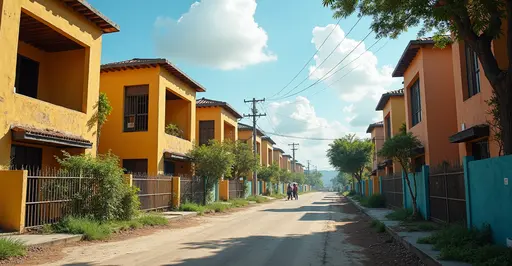
Major Push for Affordable Housing in Latin America
A groundbreaking public-private partnership (PPP) initiative has launched across Latin America to address the region's critical housing shortage. The program aims to construct thousands of low-cost urban homes through innovative financing and construction methods.
Tackling the Housing Crisis
With over 50% of urban workers in informal employment and mortgage markets reaching just 10-30% of GDP in most countries, affordable housing remains out of reach for millions. "Speculative land practices and fragmented ownership drive costs up," explains Angel Cardenas, Urban Development Manager at CAF Development Bank. "Land alone accounts for 10-30% of housing expenses."
Four-Pillar Strategy
The initiative targets both supply and demand barriers:
- Regulatory Reform: Streamlining permit processes through single-window systems and flexible zoning for higher-density development
- Innovative Financing: Implementing housing microfinance, rent-to-own schemes, and land value capture mechanisms
- Construction Innovation: Scaling prefabricated and modular housing to reduce costs by 15-30%
- Infrastructure Integration: Developing transit-connected communities with utilities and services
Partnership Models
The PPP framework includes performance-based contracts where private developers receive government-backed incentives for meeting affordability targets. Projects like Brazil's Zones of Special Social Interest (ZEIS) demonstrate successful models for repurposing urban land. "Public-private partnerships offer immense potential to accelerate delivery," notes a Penn IUR report.
Implementation Timeline
The first phase will deploy $500 million across 12 countries, prioritizing:
- Brazil, Mexico, and Colombia for high-density urban projects
- Andean nations for climate-resilient modular housing
- Central America for community-led land trust models
Initial projects are scheduled for completion by Q3 2026, aiming to house 250,000 low-income families.

 Nederlands
Nederlands
 English
English
 French
French
 Deutsch
Deutsch
 Espaniol
Espaniol
 Portugese
Portugese









